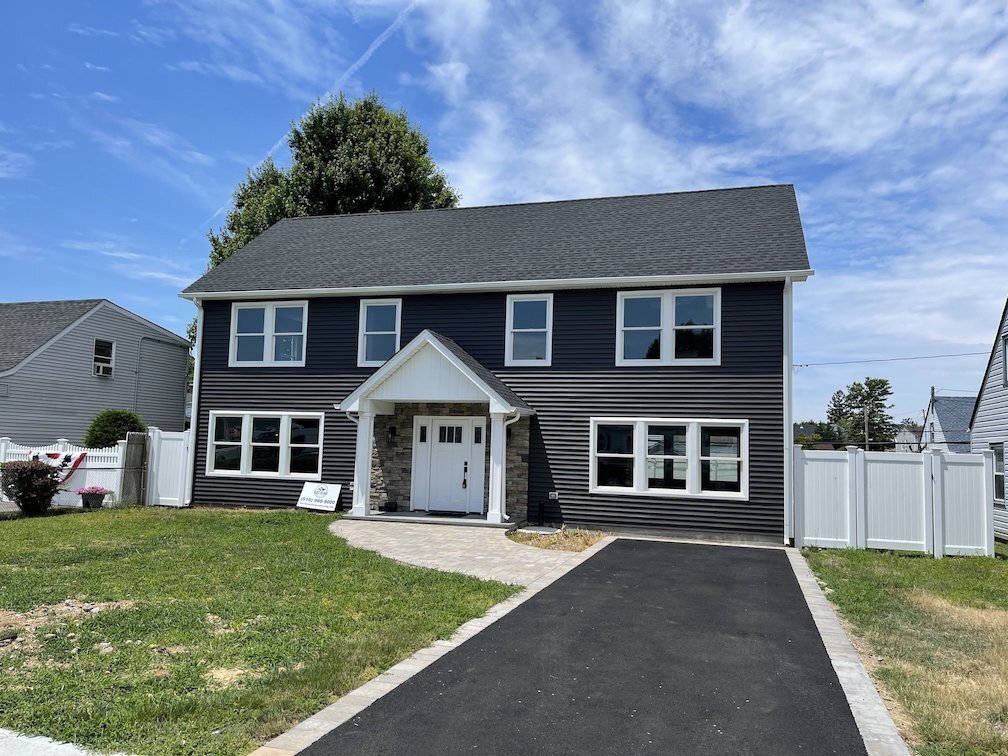Understanding What Happens When You Can’t Pay for Your House in Nassau and Suffolk County or Long Island
Foreclosure is a serious and intricate process, demanding a thorough grasp of its intricacies, especially when confronted with financial challenges in meeting mortgage obligations in Nassau and Suffolk County or Long Island. In this comprehensive exploration, we will delve deeper into the various facets of foreclosure, aiming to provide an in-depth understanding of its stages and potential ramifications.
Navigating the Foreclosure Process – A Comprehensive Overview
Foreclosure is not merely a financial setback; it’s a legal procedure initiated by lenders when borrowers fall behind on mortgage payments. Let’s unravel the layers of this process, acknowledging the gravity of the situation and exploring potential avenues for resolution.
- Notification Phase:
- The foreclosure journey often commences when borrowers miss 3-6 months of mortgage payments.
- Prior to formal proceedings, lenders issue multiple notices, notifying borrowers of the delinquency and impending actions.
- Judicial Foreclosure:
- In jurisdictions employing judicial foreclosure, lenders file a court petition to reclaim the property.
- Post-court proceedings, borrowers receive a notice, stipulating a specific timeframe, typically 30 days, for payment.
- Failure to meet this deadline may lead to the property being auctioned, with law enforcement facilitating eviction if necessary.
- Power of Sale (Non-Judicial Foreclosure):
- In non-judicial foreclosure, lenders issue a formal notice demanding payment without court involvement.
- After a designated period, control of the property transfers to a trustee appointed by the lender.
- The trustee has the authority to auction the property, ensuring proper public disclosure of the sale.
- Post-Auction Phase:
- Following the auction, proceeds are allocated to settle the outstanding mortgage balance.
- In instances where the auction doesn’t cover the entire debt, lenders may pursue a deficiency judgment.
- A deficiency judgment compels borrowers to pay the remaining balance, either the fair market value or the entire borrowed amount.
Navigating the complexities of foreclosure requires diligence and understanding. Proactive engagement with lenders and seeking assistance from reputable real estate professionals can help explore alternatives and potentially avoid reaching the auction stage.
Beyond the Foreclosure Proceedings – Exploring Mitigation Strategies
Understanding the potential ramifications of foreclosure prompts consideration of mitigation strategies. While foreclosure is undoubtedly a challenging experience, it’s not an insurmountable obstacle. Here are strategies to navigate this intricate terrain:
- Communication with Lenders:
- Open and transparent communication with lenders is paramount. Explaining financial difficulties and exploring loan modification options can lead to viable solutions.
- Legal Assistance:
- Seeking legal advice can provide insight into potential defenses against foreclosure actions. Legal professionals can assess the situation and identify any procedural errors or violations.
- Financial Counseling:
- Enlisting the services of a financial counselor can offer guidance on managing debts and creating a sustainable financial plan.
- Short Sale Negotiations:
- Initiating negotiations for a short sale involves selling the property for less than the outstanding mortgage balance. While it impacts credit, it can be less damaging than a foreclosure.
- Deed in Lieu of Foreclosure:
- A deed in lieu of foreclosure involves voluntarily transferring the property to the lender to satisfy the debt. While it has credit implications, it can be a more amicable resolution.
- Bankruptcy Consideration:
- Bankruptcy is a legal option that may temporarily halt foreclosure proceedings, providing an opportunity to restructure debts.
- Real Estate Professionals:
- Collaborating with reputable real estate professionals, like our team at 2R Properties, can yield personalized strategies. Professionals can negotiate with lenders, explore alternative solutions, and guide through the intricacies of the real estate market.
The Importance of Timely Intervention
Timely intervention is crucial when facing foreclosure. Acting promptly, exploring available options, and seeking professional guidance can significantly impact the outcome. While foreclosure is undoubtedly a formidable challenge, it’s essential to approach it with a proactive mindset and a comprehensive understanding of potential resolutions.
Conclusion: A Path Forward
In conclusion, foreclosure is a complex process with multifaceted implications. Understanding its stages and potential mitigation strategies empowers individuals facing financial challenges. Engaging with lenders, seeking legal and financial counsel, and exploring alternative solutions are integral components of navigating the foreclosure landscape.
If you find yourself in a situation where you need to sell a property in Nassau and Suffolk County or Long Island, our team at 2R Properties is here to offer support and guidance. We understand the complexities involved and are committed to assisting you through this challenging time. With proactive measures and informed decisions, there is a path forward to financial stability and a brighter future.
We buy houses in Suffolk County NY like yours from people who need to sell fast.
Give us a call anytime (631) 892-7855 or
fill out the form on this website today! >>
Another Foreclosure Resource For Suffolk County NY HomeOwners:

